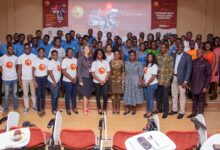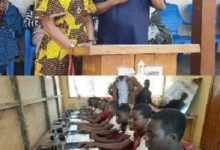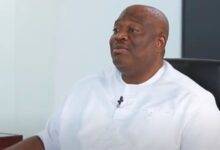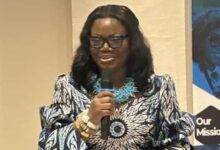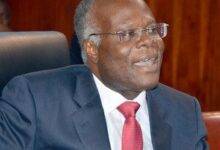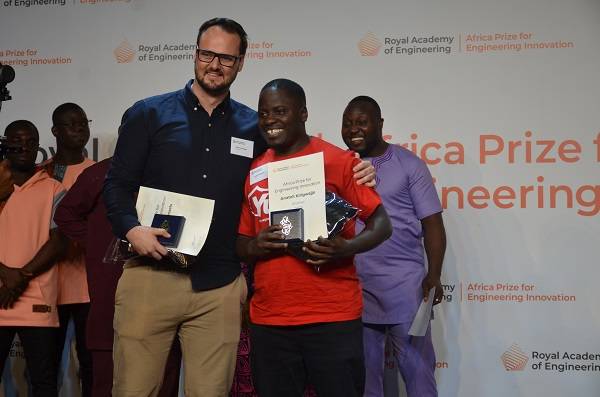
A South African engineer, Edmund Wessels owner of Flexigyn and a Ugandan Engineer, Anatoli Kirigwajjo owner of Yunga, have jointly won this year’s edition of the Royal Academy of Engineering’s Africa Prize for Engineering Innovation final.
They were both presented with £25,000, medals, certificates and branded wear Ghana T-shirts whilst two other participants, a Nigerian engineer, Chukwuemeka Eze owner of Revive Kit and a Tanzanian Engineer, Gibson Kawago owner of WAGA PAWA Pack were each presented with £10,000.
Four finalists delivered pitches at the awards ceremony in Accra on Thursday before a panel of judges chose the winners.
Also, of the remaining 11 shortlisted participants, a Nigerian engineer, Mr Tolulope Olukokun, owner of ThinkBikes, CoolMax won the One to Watch category and was presented with £5,000 and a certificate.
The Africa Prize for Engineering Innovation, founded by the Royal Academy of Engineering in the United Kingdom in 2014, is Africa’s biggest prize dedicated to supporting and upscaling engineering innovation. Since its inception, it has supported over 130 entrepreneurs across 20 African countries.
The entrepreneurs receive a rigorous business training programme and lifelong project support through the Africa Prize alumni network.
Speaking at the event, the Dean of the School of Engineering Sciences at the University of Ghana, Professor Elsie Effah Kaufman, noted that innovation was not limited to engineering and its path was not easy to walk on due to the challenges it presents.
“Many innovators face constraints in accessing capital, infrastructure and technological resources, encounter challenges reaching underserving populations, bridging the digital divide, navigating complex regulatory frameworks and bureaucracies, and the short supply of funding for research,” she said were some of the challenges African innovators face.
She explained that African innovators were resilient and resourceful, hence the ability to leverage their unique circumstances to produce ground-breaking solutions towards the socioeconomic development of the continent.
“By capitalising on the available opportunities and addressing the challenges head-on, African innovators have shown again the potential to drive transformational change and shape and prosperous future for the continent,” she said.
She further made a passionate appeal to all female innovators on the African continent to participate fully in the future editions of the Africa Prize for Engineering Innovation and contribute to the solutions of the future.
Anatoli Kirigwajjo owner of Yunga said that his company was started when he lost over $1,300 worth of assets in a break-in, with little chance of the thieves being caught.
“We hope that with our household networks, communities will become harder targets for criminals which will ensure safety, and in turn create the space for economic activities to thrive,” he explained.
He urged all African Innovators to apply for the next edition of the Africa Prize for Engineering Innovation, as it provided the platform to grow their business, connect them to the right people, and help them to improve their businesses.
Edmund Wessels owner of Flexigyn said due to his participation in the programme, he and his team realised that it was not enough to help only gynaecologists with the right tools but “we need to do more to help women across the continent.”
He added that engineering was not only a formal process as anyone could be an engineer through self-learning and trying to make a difference.
BY JESSEL LARTEY THERSON-COFIE

